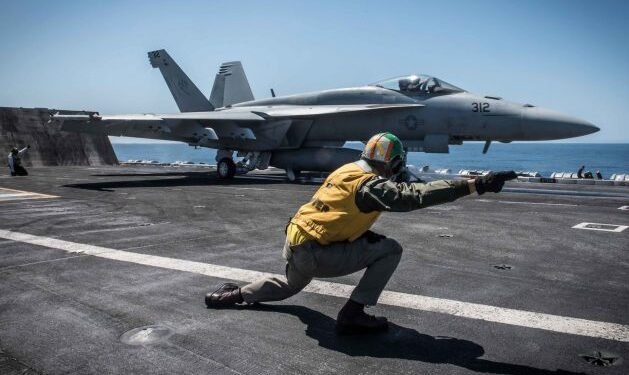Donald Trump announced that he ordered air strikes on a senior attack planner and other members of the Islamic State (IS) group in Somalia this February 2025.
“These killers, who we found hiding in caves, threatened the United States and our Allies,” Trump posted on social media. “The strikes destroyed the caves they live in, and killed many terrorists without, in any way, harming civilians.”
In a post on X, the office of the president of Somalia confirmed they were informed of the US strike targeting senior IS leadership in the northern part of the country. President Hassan Sheikh Mohamud acknowledged the unwavering support of the United States in the fight against international terrorism and welcomed the continued commitment under the decisive leadership of President Donald Trump. The post also noted that the latest operation reinforces the strong security partnership between Somalia and the United States in combating extremist threats.
According to the Public Affairs Office of the United States Africa Command (AFRICOM), airstrikes were conducted against ISIS-Somalia on February 1, 2025, in coordination with the Federal Government of Somalia. The initial assessment is that multiple ISIS-Somalia operatives were killed in the airstrikes with no civilian casualties. AFRICOM emphasized that protecting civilians remains a vital part of their operations to promote a more secure and stable Africa. They will continue to assess the results of the operation and provide additional information as appropriate, without releasing specific details to ensure continued operational security.
US Defence Secretary Pete Hegseth stated, “our initial assessment is that multiple operatives were killed in the airstrikes and no civilians were harmed.” Hegseth added that the strikes further degrade IS’s ability to plot and conduct terrorist attacks and send a clear signal that the United States always stands ready to find and eliminate terrorists. The strikes were carried out in the Golis mountains in north-east Somalia.
The government of Puntland, a region in north-east Somalia, expressed gratitude to “international friends” who participated in the airstrikes that killed high-ranking members of IS.
IS gained international prominence in the 2010s, particularly in Syria and Iraq, but its presence is now mainly restricted to parts of Africa. The Somali branch of IS was formed in 2015 by defectors from the al-Qaeda affiliated al-Shabab group, the largest jihadist group in Somalia. IS in Somalia is known for extorting locals and carrying out small-scale, sporadic attacks, according to the US Office of the Director of National Intelligence.
Trump also criticized the former administration, stating that the US military had targeted this IS planner for years, but accused Joe Biden “and his cronies” of not acting quickly enough “to get the job done. I did!”
US forces killed IS leader Bilal al-Sudani and 10 of his operatives in a remote mountainous cave in northern Somalia in 2023, in an operation ordered by Biden. One of the last actions Trump took when he left the White House in 2020 was to pull hundreds of US troops out of Somalia. He has now ordered the first attacks on the nation less than two weeks after his return.
Trump maintains that he does not want the US involved in other countries’ conflicts, while Biden aimed to wind down America’s involvement in post 9/11 conflicts. However, Washington sees Somalia differently due to the longstanding threat posed by al-Shabab. The US has invested significantly in the country to contain this threat.
Trump ordered strikes during his first term, despite pulling troops out in the final days of his presidency. Biden reversed that decision in 2021 to maintain a continuous US presence. In his second term, Trump has kept troops in Somalia but may eventually take a different approach, not just in Somalia but in Africa as a whole. His former defence secretary, Mark Esper, stated in his memoir that Trump “didn’t see much value” in having Americans—military personnel or diplomats—anywhere on the continent.
This may be particularly true with Somalia, where al-Shabab seems to be growing more resilient, potentially leading the US to reconsider its involvement. During Trump’s first term, he de-prioritized US outreach to Africa, hosting only two Sub-Saharan African leaders and never visiting the continent. In his second term, Trump may view Africa through a competitive lens due to the expanding influence of US adversaries Russia and China on the continent.









